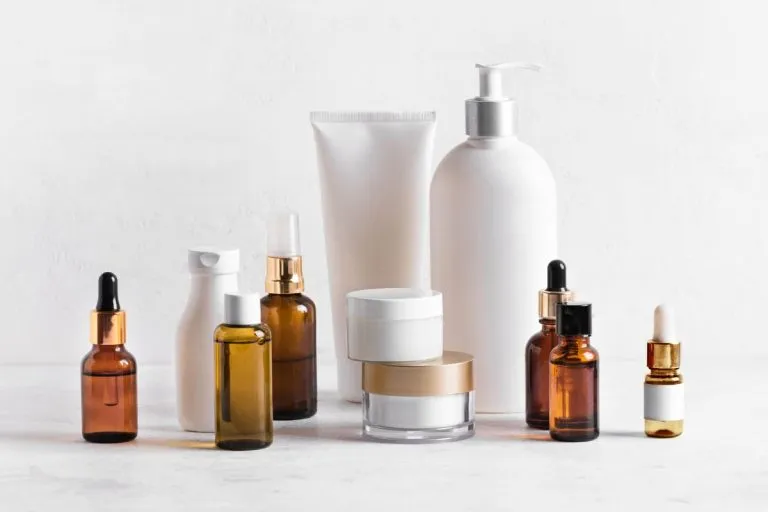Holistic Acne Care: An Integrative Approach to Clearer Skin

Holistic Acne Care: An Integrative Approach to Clearer Skin
If you struggle with acne, you are not alone! Acne is one of the most common skin conditions, affecting people of all ages (not just teens). While many focus on topical treatments, the truth is that the causes of acne are complex and multifactorial. At our MindStream, we take an integrative approach to acne, diving deep into factors such as genetics, environment, nutrition, and lifestyle.
Common Acne Triggers: What’s Causing My Breakouts?
While everyone’s skin is different, some triggers can often worsen acne:
Whey and Dairy Products

Studies have shown that dairy, particularly whey protein, can contribute to acne breakouts. The hormones and bioactive molecules in milk may trigger insulin spikes and inflammation, aggravating the skin.
Over-Supplementing B Vitamins

B vitamins, especially B12, can sometimes lead to acne flare-ups in certain individuals by altering the gene expression of skin bacteria, which can cause inflammation and breakouts.
High Glycemic Index Foods

Foods like white bread, sugary snacks, and processed carbs can spike blood sugar levels, leading to increased insulin production. This promotes inflammation and oil production, contributing to acne.
Excessive Use of Skincare Products

Overuse of harsh exfoliants, scrubs, or drying products can irritate the skin and strip it of natural oils, prompting the skin to produce more sebum, which can clog pores.
Stress

Chronic stress increases cortisol levels, which can lead to hormonal imbalances and inflammation. Stress-induced acne is particularly common on the face and back.
Certain Medications

Some medications, like corticosteroids, lithium, or certain contraceptives, may trigger or worsen acne by altering hormone levels or causing other physiological changes.
Oils in Hair Products (Pomades)

Oils and chemicals from hair products can seep into the skin, especially around the forehead and hairline, contributing to breakouts.
Smoking and Vaping

Smoking can damage collagen and elastin, and it also reduces blood flow to the skin. This can make acne-prone skin more susceptible to inflammation and breakouts.
Inadequate Sleep

Poor sleep can negatively impact skin health by increasing stress levels, disrupting hormone balance, and impairing the skin’s ability to repair itself.
Lesser-Known Factors
Beyond these common culprits, other less-known factors may also play a significant role:
- Blood Sugar Imbalance: Acne is often linked to insulin resistance or blood sugar dysregulation. When blood sugar levels spike, the body produces more insulin, which can lead to inflammation and the overproduction of sebum, the oil responsible for clogging pores.
- Hormonal Imbalances: Hormones such as androgens (e.g., testosterone) can increase oil production in the skin, leading to blocked pores. This is why acne often worsens during puberty, menstruation, or times of high stress.
- Micronutrient Deficiencies: Key vitamins and minerals like zinc, vitamin A, and omega-3 fatty acids play a critical role in maintaining healthy skin. Deficiencies in these nutrients can impair skin health and exacerbate acne.
Our Integrative Approach to Acne

With integrative skin consultations at MindStream, we go beyond surface-level solutions and address the root causes of acne through detailed evaluations. This may include:
Standard Lab Testing Evaluation
We assess your vitamin and mineral levels to identify any deficiencies that could be contributing to acne. Tests for vitamin A, zinc, and essential fatty acids can provide insight into your skin health. We also evaluate metabolic health and glucose control to determine if blood sugar imbalances might be playing a role.
Specialty Testing and Evaluation
- Gut Microbiome Testing (BiomeFX): The health of your gut is intricately linked to the health of your skin. Imbalances in the gut microbiome can lead to systemic inflammation, which can worsen acne. Testing the gut microbiome helps us determine if any imbalances or pathogens may be contributing to your skin issues.
- Hormone Testing (DUTCH Test): Hormonal imbalances are often a significant factor in acne, particularly for women. Using comprehensive hormone testing like the DUTCH test, we can evaluate your levels of estrogen, progesterone, testosterone, and other hormones to determine if there is a hormonal component to acne.
- Genetic Testing (3×4 Genetics): Our genes provide a blueprint for how our body functions, including how it responds to inflammation, nutrient absorption, and hormone regulation. 3×4 genetic testing can give us a personalized understanding of unique genetic factors that may influence acne development.
Personalized Acne Care for Long-Term Results
With the data from lab tests and specialty testing, we create a personalized treatment plan tailored to your unique needs. This plan may include:
- Nutritional Guidance: Addressing dietary triggers, and incorporating skin-supportive nutrients and supplementation.
- Hormone Balancing: Helping regulate hormones through lifestyle changes or supplementation.
- Gut Health Support: Incorporating probiotics, prebiotics, and dietary changes to promote a balanced gut microbiome.
- Lifestyle Modifications: Managing stress, improving sleep quality, and optimizing exercise routines to support overall health and skin clarity.
By taking an integrative approach, we don’t just treat your acne—we work to understand the underlying causes and offer a long-term solution for healthier, clearer skin.
To schedule your integrative skin consultation, call us at 615.541.9933 or book online.
Sources
- Bowe WP, Joshi SS. “Gut and skin axis: The role of the microbiome in acne.” Clin Dermatol. 2016.
- Melnik BC, John SM, Schmitz G. “Milk consumption during pregnancy increases acne and insulin resistance in adult male progeny.” J Dtsch Dermatol Ges. 2016.
- Burris J, Rietkerk W, Woolf K. “Diet and acne: A review of the evidence.” Int J Dermatol. 2013.
- Smith RN, Mann NJ, Braue A, et al. “The effect of a high-protein, low glycemic-load diet on biochemical parameters associated with acne vulgaris.” J Am Acad Dermatol. 2007.
Disclaimer: This blog post is for informational purposes only and should not be construed as medical advice. Please consult with your healthcare provider before making any changes to your diet, exercise routine, or medication use.


